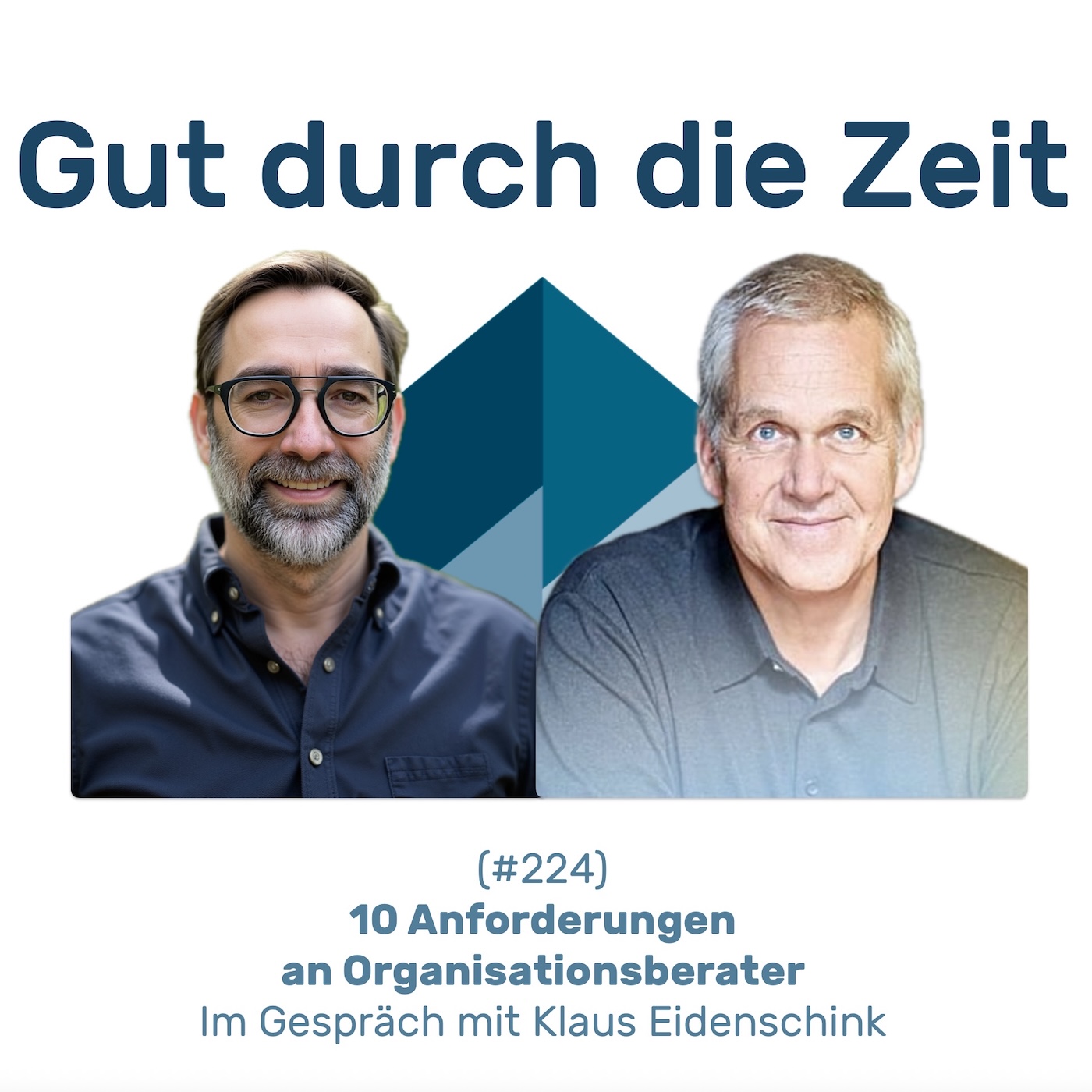INKOVEMA Podcast „Well through time“
#224 GddZ
10 Requirements for organisational consultants
Counselling as a special service
In conversation with Klaus Eidenschink
Studied theology, psychology and philosophy, graduate theologian, senior coach and trainer (DBVC), Gestalt therapist (DVG), supervisor, alternative practitioner for psychotherapy (unrestricted healing licence according to § 1 HeilprG), managing director of Eidenschink und Partner and the Hephaistos training institute, whose theoretical basis is the metatheory of change.
Contents
Chapter:
Summary of content
In this episode of the podcast "Gut durch die Zeit", I focus on the personal requirements for (organisational) consultantsespecially in the areas of mediation, conflict coaching and organisational consulting. Together with Klaus Eidenschink, an experienced organisational consultant and author, we look at the challenges facing consultants in organisations. Our discussions are based on the ten specific requirements that Klaus and his co-author Uli Merkes set out in their book "Decisions without reason" have formulated.
We begin with the discussion that successful consulting goes far beyond simply satisfying the customer. This satisfaction is often used as a measure of success, but we emphasise that true counselling often causes discomfort and uncertainty among clients. In this context, we shed light on Two common misunderstandings in the counselling landscape: the Expert advicewhere the consultant acts as a knowledgeable person and provides advice on Education threatens to degenerate, and the Servicewhere the counsellor Agents of the client. In our understanding, neither approach leads to genuine counselling, as they No independent development promote.
A central point in our conversation is the concept of the counselling system, which is formed from the relationship between counsellor and client. It is crucial that both parties maintain their own rules and identities in order to facilitate a fruitful counselling system. This leads us to the ten requirements for counsellors, which are not only theoretically but also practically relevant. It becomes clear that Uncertainty tolerance is one of the key competences that consultants need to be able to work successfully.
We discuss the Symbiosis immunitywhich enables counsellors to remain independent of their clients' expectations, as well as the importance of self-esteem stability. The counsellor must not become dependent on the client, but must bring their own opinions and impulses to the counselling session. This leads to a genuine interaction that is profitable for both sides.
The Pilotage expertise is another important requirement that we discuss. A good consultant must not only know the waters in which they are operating, but also have the ability to recognise and interpret the signals of their counterpart. We emphasise that real Affinity for surprise and Ambiguity force are essential for consultants to be able to react flexibly and adaptably to the dynamic requirements of consulting situations.
The Emotional resonance strength also plays a central role. Counsellors must be able to perceive and reflect on their own emotions and those of their clients. This results in the potential for deeper insights and the opportunity to open up new perspectives in counselling. Finally, we deal with the topic of The joy of storytellingwhich helps counsellors to clarify complex patterns and situations through stories and analogies.
In the course of the conversation, it becomes clear that the demands placed on counsellors are not only challenging, but also represent an opportunity to reflect on and further develop their own practice. Klaus and I are looking forward to the forthcoming publication of the extended version of his book, which will enable readers to integrate these valuable insights into their own counselling work.
Complete transcription





Leave A Comment